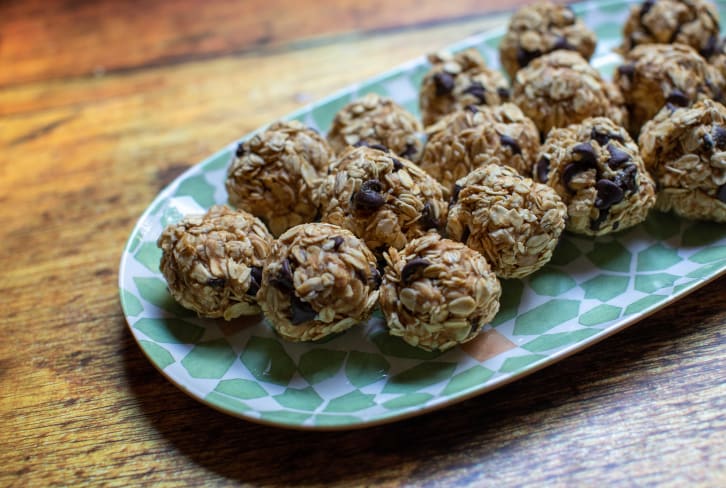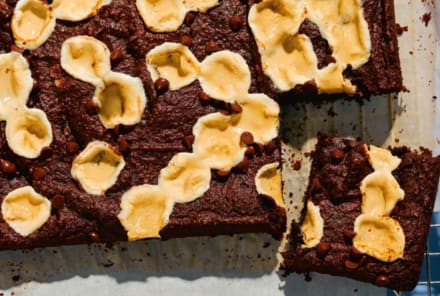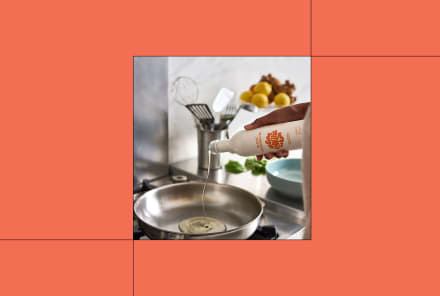Advertisement
The Healthiest Way To Consume Alcohol, According To A Nutritionist


There is a history of consumption of fermented beverages dating back thousands of years. If you consume alcohol, as I do, you may want to empower yourself by knowing the healthiest options out there and also understanding how it is metabolized and how you can support your system when you do imbibe.
Here's my perspective—as a functional medicine dietitian—on healthier forms of alcohol and the best way to support your body before, during, and after drinking.
But first, let's take a look at why you need to support your body if you drink in the first place.
Your body on booze: Why it can make you feel crappy—even if you don't drink a lot.
Unlike food consumption, which requires digestion, alcohol is absorbed extremely quickly, as our bodies make enzymes that break down alcohol before it even hits the digestive tract. That's why we can feel the effects fast. Once absorbed completely in the intestines, alcohol then travels via the bloodstream to the liver, activating primary detox enzyme pathways and cytochrome p450 enzymes, which prioritize getting the toxin (i.e., the alcohol) out of your body.
This can create stress on the liver, and if you don't support this organ with the right nutrients and ample hydration, it will get taxed—thus impairing its ability to detoxify excess hormones and toxins, convert nutrients into forms that can be stored or used, and regulate blood sugar levels. Ever wake up in the middle of the night after a few too many with night sweats and a blood sugar crash? That's because the liver was overworked and unable to properly manage glucose levels during sleep. If you are having these types of reactions, you either drank too much or you're under-supporting your liver.
When your liver metabolizes alcohol, it requires glutathione, the most potent antioxidant in the body, demanded in both phases of detoxification—phase 1 of toxin activation in the liver and phase 2 of toxin excretion. Your genetics, especially genes involved with processes of detox, can hinder your ability to activate these processes, which creates more hangover symptoms in some people than others. But regardless of whether or not you have sluggish detox genes, you will benefit from optimizing hydration and glutathione levels and supporting your gut.
Alcohol also dehydrates you—it increases urination by interfering with antidiuretic hormones, telling the kidneys to send the liquid right to the bladder to bypass absorption. This can throw off water distribution throughout the body and drive electrolyte imbalance, which can result in headaches, brain fog, dizziness, fatigue, and dry mouth. Depending on the severity of dehydration and nutrient depletion, organs can start to essentially dry up and take moisture away from the brain. This can result in an epic hangover headache.
Additionally, certain alcohol additives such as preservatives, colorants, and chemicals as well as naturally occurring irritants such as histamines and yeast, can further distress the detox process and interfere with the gut microbiome.
So, what types of alcohol can help you avoid these effects?
My top picks: wine, ultra-distilled spirits, and clean cocktails.
Wine has many health-supporting properties, providing antioxidants such as resveratrol, shown to reduce stroke and blood pressure and provide anti-aging properties. Also, quality, small-scale dry-farmed wines often have microbiome-supporting probiotics that occur naturally via the fermentation process and aren't hindered by excessive additives or sulfites.
For cocktails, ordering whole-, real-ingredient mix-ins (i.e., not syrups and processed products) while keeping added sugars low, is the best approach. I recommend combining a two- to three-times distilled liquor; sparkling water or kombucha; and flavor enhancers like fresh citrus, roots, or herbs; and maybe a pinch of salt to boost electrolytes. Basically, a clean margarita! (Scroll to the end for my Avo-Rita recipe.)
5 ways to support your body before, during, and after alcohol consumption.
Beyond sticking to wine, clean spirits, and clean cocktails, here are my top tips for consuming alcohol in the healthiest way possible:
Focus on hydration and slow down.
By drinking water between each alcoholic beverage and generally pacing yourself and enjoying the moment (rather than chugging), you can save yourself a lot of trouble.
Eat glutathione-boosting foods.
- Vitamin C–rich foods: Incorporating vitamin C–rich foods (and potentially via supplements) on a regular basis can aid in reducing oxidative stress in the body, thus preserving glutathione levels. These include citrus, bell peppers, leafy greens, and berries.
- Sulfur-containing foods: These foods contain the amino acid cysteine, a contributor to healthy glutathione levels. I recommend at least one daily serving. These include sulfur-rich vegetables such as Brussels sprouts, broccoli, cabbage, cauliflower, onions, garlic, and leeks. Cysteine is also present in beef, grass-fed whey, poultry, and fish.
Sip on some bone broth.
Bone broth provides a rich source of glycine and glutamate, two other building blocks of glutathione. Bone broth not only supports detox and antioxidant status; it also helps replenish the electrolytes that get flushed from your system with alcohol consumption and provides key nutrients (glutamine, gelatin, and collagen) that help protect your gut lining from the effects of alcohol.
Repopulate those gut bugs.
If you aren't having a dry-farmed wine, the alcohol you're consuming is actually killing off some of your good gut bugs. This can create an opportunity for yeast to flare and may contribute to mood imbalances, as greater than 90% of our serotonin is made in the gut by probiotic bacteria. To preserve your good gut bacteria, consider sipping on a cocktail mixed with kombucha (or rotate this sparkling beverage between alcoholic beverages) and ensure you consume some type of cultured or fermented food such as yogurt, kimchi, sauerkraut, kombucha, or pickled veggies the day after.
Consider these supplements.
Some supplements to consider taking on a regular basis to support detoxification, and thus curb hangover symptoms to an extent, include: milk thistle seed, s-acetyl or liposomal glutathione, buffered vitamin C, turmeric, and magnesium bisglycinate.
What NOT to do if you drank a little too much.
Although reaching for an OTC pain reliever may seem like a convenient way to curb hangover symptoms, certain common interventions may actually do more harm than good when you're in a hangover state. Be especially mindful of the following:
- Acetaminophen is metabolized through the liver and is quite depleting to glutathione levels. In fact, in the case of Tylenol overdose, it is standard practice to provide an IV of n-acetyl cysteine (NAC), a building block of glutathione.
- NSAIDs (nonsteroidal anti-inflammatory drugs) such as ibuprofen, naproxen, and aspirin drive damage to your gut lining. These drugs even come with the warning "This may cause stomach bleeding." So, after you have irritated your gut with alcohol, it's definitely not a good idea to further stress it out.
- Activated charcoal if you are past drunk is likely not going to help the hangover. In fact, charcoal as a binder can further deplete electrolytes and drive dehydration and constipation, both things that only make a hangover worse. During active toxicity, charcoal may be helpful, but I typically only use it with food poisoning, and not hangovers, as it can trap toxins but it doesn't support the liver or kidneys in processes of detoxification.
If you're feeling a little rough the next day, try this.
Beyond water and bone broth, these are two of my go-to recipes for curbing unpleasant post-drinking symptoms: Turmeric Lemonade or Lavender CBD Cold Brew. Turmeric Lemonade supports bile flow and activates the liver thanks to a boost of vitamin C and antioxidants. As for the cold brew, coffee reduces swelling in blood vessels in the brain that drive headaches, so it can help get you back to feeling like a human again. Adding some CBD can further reduce inflammation and potentially help alleviate post-alcohol anxiety.
Try this nutritionist-approved cocktail recipe.
My Avo-Rita cocktail is a fun take on a margarita that combines the healthy fats from coconut milk and avocado to create a creamy treat while slowing down the absorption of alcohol. The addition of coconut water and lime plus sea salt on the rim helps to prevent electrolyte depletion that occurs with alcohol consumption.
The Avo-Rita
Serves 2
Ingredients
- 3 oz. clear tequila like Casamigos, Espolon, or Jimador
- Juice of 3 limes
- Zest of 1 lime
- 1 cup coconut water
- ¼ cup full-fat coconut milk
- ¼ cup frozen avocado chunks (I buy them at Costco, or you can use fresh avo + ½ cup ice)
- 1 to 2 tsp. raw local honey (optional)
- Sea salt and chili powder for rim
Method
Combine the tequila, lime juice and zest, coconut water, coconut milk, avocado, and honey (if using) in a blender and blend until smooth. Taste and adjust lime juice, sweetness, and coconut milk as needed. Pour over ice into a cocktail glass rimmed with chili powder and sea salt. Top with additional lime zest. Cheers!
Watch Next
Enjoy some of our favorite clips from classes
Enjoy some of our favorite clips from classes
What Is Meditation?
Mindfulness/Spirituality | Light Watkins
Box Breathing
Mindfulness/Spirituality | Gwen Dittmar
What Breathwork Can Address
Mindfulness/Spirituality | Gwen Dittmar
The 8 Limbs of Yoga - What is Asana?
Yoga | Caley Alyssa
Two Standing Postures to Open Up Tight Hips
Yoga | Caley Alyssa
How Plants Can Optimize Athletic Performance
Nutrition | Rich Roll
What to Eat Before a Workout
Nutrition | Rich Roll
How Ayurveda Helps Us Navigate Modern Life
Nutrition | Sahara Rose
Messages About Love & Relationships
Love & Relationships | Esther Perel
Love Languages
Love & Relationships | Esther Perel
What Is Meditation?
Box Breathing
What Breathwork Can Address
The 8 Limbs of Yoga - What is Asana?
Two Standing Postures to Open Up Tight Hips
How Plants Can Optimize Athletic Performance
What to Eat Before a Workout
How Ayurveda Helps Us Navigate Modern Life
Messages About Love & Relationships
Love Languages
Advertisement

These Peanut Butter Cup Protein Bites Make The Perfect On-The-Go Snack
Molly Knudsen, M.S., RDN










